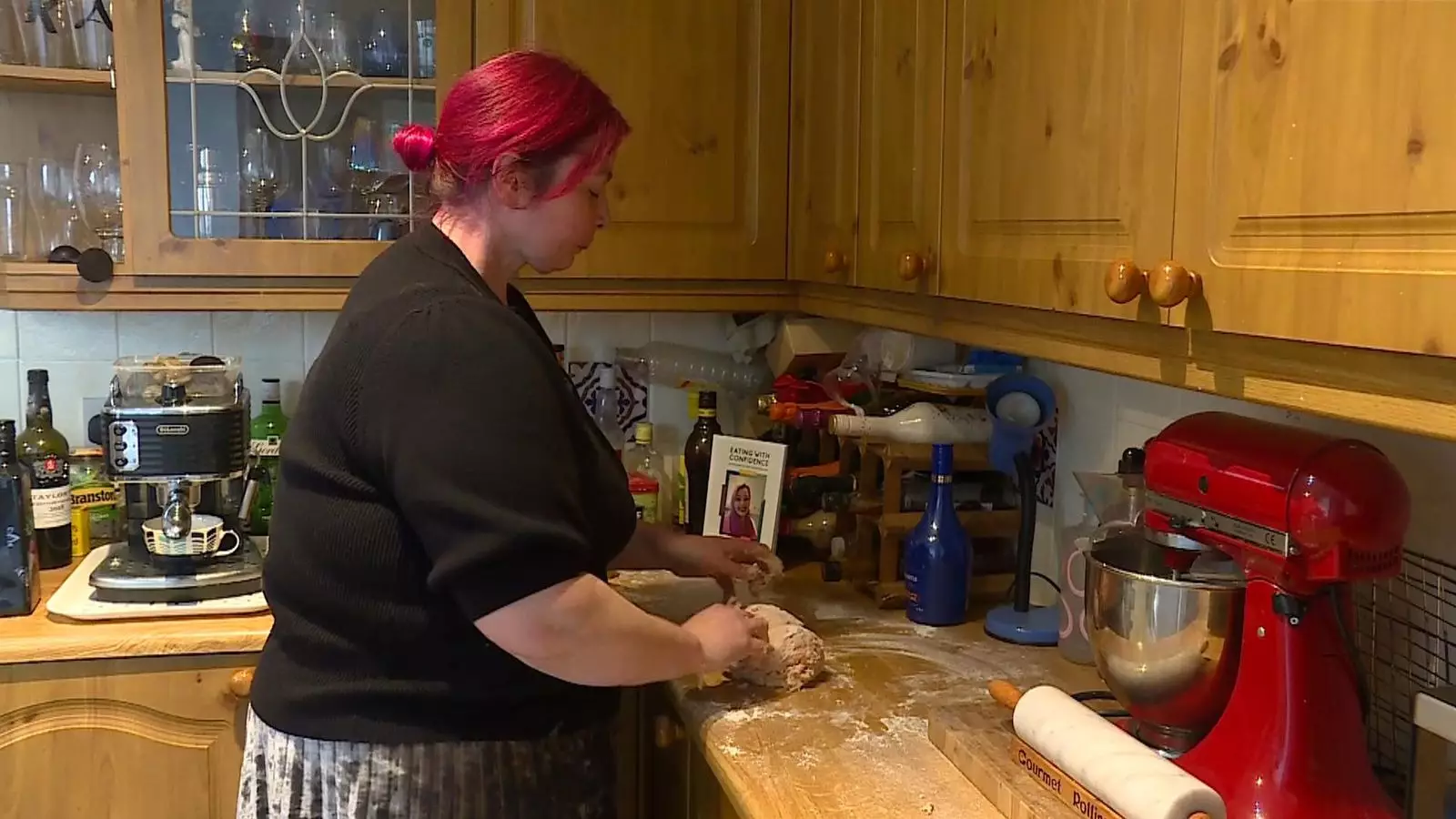Laura Marston’s life was once filled with the joy of cooking and baking. She embraced her identity as a foodie wholeheartedly, finding solace and passion in the kitchen. However, everything changed dramatically when she received a mouth cancer diagnosis in 2019. At just 39 years old, Ms. Marston’s world was turned upside down as she faced the harsh reality of living without her tongue. Her story is not just an account of personal suffering but also serves as a poignant reminder of the growing prevalence of mouth cancer in the UK, where cases have surged to alarming levels.
The statistics released by the Oral Health Foundation are sobering. For the first time in history, over 10,000 cases of mouth cancer were reported in a single year—specifically, 10,825 cases in the last year alone. This represents an astonishing 133% increase in the last two decades, which should raise red flags for public health officials and communities alike. This is not just a statistic; it signifies lives impacted, families altered, and futures abruptly changed, as indicated by the heart-wrenching number of 3,637 lives lost to the disease last year.
Ms. Marston’s journey illustrates the often slow and painful road to diagnosis associated with mouth cancer. Despite consulting multiple healthcare professionals, it took several months for her condition to be confirmed. By that time, the invasive decision to remove her tongue became necessary, a brutal turning point that she describes as devastating. The initial shock of hearing she would never speak or taste food again was incomprehensible, but her resilience shines through her subsequent efforts to navigate life after such a loss.
Adapting to this new reality has not come easily. Laura’s experience underscores a critical aspect of living with mouth cancer: the practical challenges of everyday life. From meal planning to finding ways to communicate, her struggles illuminate how a cancer diagnosis extends far beyond physical health—it impacts emotional well-being and day-to-day logistics. “I can’t just grab a meal,” she explains. “I have to plan ahead because I’m always at a high risk of choking, which is terrifying.” This dimension of her experience is often overlooked, but it deserves attention as individuals with similar conditions seek not just survival, but quality of life.
The rise in mouth cancer cases seen recently is alarming and complex. According to Dr. Nigel Carter OBE, chief executive of the Oral Health Foundation, the increase speaks to deeper societal issues and an urgent need for awareness. Symptoms like unusual red or white patches in the mouth or lumps in the neck must be recognized early, yet so many individuals remain unaware of these critical signs. The growth in mouth cancer cases can be attributed to well-known risk factors such as smoking and excessive alcohol consumption, but new concerns are arising linked to the human papillomavirus (HPV), highlighting a growing trend that deserves attention and research.
The demographics of mouth cancer are striking as well, with men accounting for 66% of diagnoses and those over 50 comprising over 90% of all cases. This disproportionate impact signals a need for targeted education and outreach efforts. Dr. Carter emphasizes the importance of early detection, calling it a lifesaver for countless individuals. “Too many cases are diagnosed too late, often at the most advanced stage,” he states, echoing the urgency of raising awareness.
The message from health officials couldn’t be clearer: recognition, awareness, and early detection are paramount. There is a collective responsibility to educate the public about the risks and symptoms associated with mouth cancer. Meanwhile, government officials face the challenge of addressing systemic issues in the UK’s National Health Service (NHS), where cancer mortality rates lag behind those in other countries. Promises of investing in earlier diagnosis and improving accessibility to healthcare services must translate into real change—something that will require concerted efforts from multiple stakeholders.
Laura Marston’s story stands as a powerful testament to the struggles faced by mouth cancer patients, but it is also a rallying cry for awareness and action. It serves as a reminder that behind every statistic is a human being fighting against an insidious disease. By sharing her journey, Ms. Marston not only contributes to the narrative surrounding mouth cancer but also inspires others to be proactive about their health. In an era where information is readily available, we cannot afford to remain passive. Awareness and education may be the keys that unlock the door to earlier detection and, ultimately, improved survival rates.


Leave a Reply